Brassicaceae
Showing 13–20 of 20 results
-

Hesperis matronalis / dame’s rocket
- biennial, 3+ feet tall in second year
- 4-petaled flowers, especially purple or lavender
- large inflorescences with many flowers
- garden escapee
- roadsides, waste places
-

Nasturtium officinale / watercress
- emergent aquatic in slow-ish flowing steams
- four petaled white flowers in clusters
- thick, shiny leaves
- often in dense colonies
-
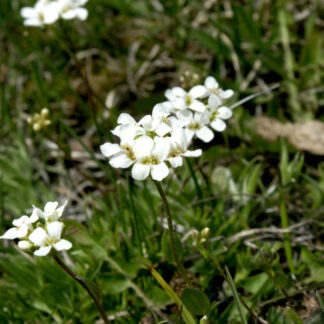
Noccea fendleri ssp. idahoensis / wild candytuft
- white crucifer, four petals in two parallel rows
- flowers in terminal clusters
- basal rosette leaves with a few on the stalks
- wetter areas
-
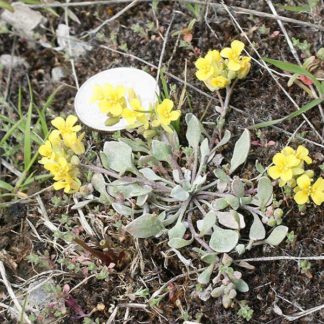
Physaria spp / twinpods
- yet another very small yellow crucifer/brassica
- densely hairy leaves, tapering to a petiole
- bloom in early spring on minimal soil in rocky places
- fruit characteristics TBPL
-
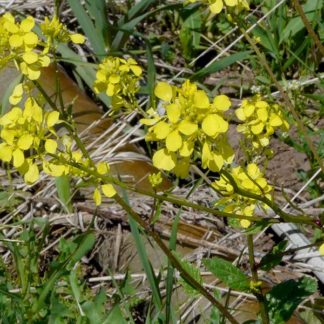
Rhamphospermum arvense / Charlock
- yellow-flowered brassica; flowers larger than most mustards
- large-ish leaves with toothed margins
- erect stems; look for a reddish purple ring at stem junctions
- disturbed areas, road sides and waste places; prefers high nutrients
- 1" siliques point out or up, but not down
-

Sisymbrium altissimum / tumble mustard
- inflorescence a raceme with yellow, teeny flowers
- long, thin seed pods (siliques)
- blooms throughout the spring and summer
- shoots look like a bunch of sticks glued together
- dries and breaks off, then tumbles
-
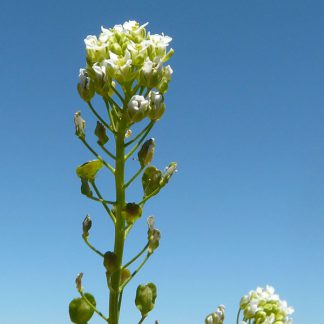
Thlaspi arvense / field pennycress
- inflorescence a raceme with white, teeny flowers
- oval seed pods ca. 1/3" across
- blooms late spring and summer
- continues blooming as pods fill from older flowers
- common weed in disturbed habitats including cultivated land
-
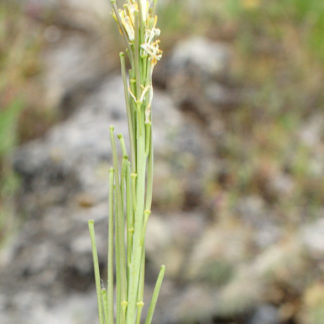
Turritis glabra / tower mustard
- long (3"-ish) stick-like seedpods, erect and hugging the stem
- nondescript mustard-family 4 petalled flowers in a cluster at the top
- tall stem with leaves clasping the stem (no petioles)
- generally in exposed, dry habitats
Showing 13–20 of 20 results